When Do Postpartum Hemorrhoids Go Away- Complete Guide for New Moms
Pregnancy brings much bliss for a new mother and her family. The excitement of the latest addition to the family dulls all other problems, and all the family members mainly focus on the arrival of the baby. However, only the pregnant woman knows what it feels like to carry a baby in her womb for nine months. She takes off the unborn baby and also of herself.
A woman has to go through multiple bodily changes to accommodate the growing fetus in her womb. Several changes in her body come with consequences that produce symptoms.
Such body changes include stretching of the uterus that produces stretch marks, increased weight that causes swelling of her feet, pressure on the stomach gives a woman acidity and reflex. In contrast, pressure on the bladder makes her want to use the toilet consistently, and the pressure of the growing uterus on the anus gives constipation.
Going through several uncomfortable symptoms makes a woman physically and mentally exhausted. The period is nothing less than an ordeal for a pregnant woman. She must face all side effects of her pregnancy to bring her baby to the world, and even after the birth of her baby, the symptoms and side effects will not disappear that quickly.
The period after birth is another ordeal that puts a woman’s overall health to test. The period is known as postpartum, and it comes with its own set of problems. Doctors advise and guide most women on how to take care of themselves during this period.
Nonetheless, postpartum becomes particularly hard for a woman because now she has to take care of herself, but she has to feed and nurture her baby.
If a woman has given birth to her first child, it is harder for her to deal with a situation as it is a new experience for her. She may feel puzzled many times and tired of her unique situation.
Most common side effects of pregnancy is constipation. This article will provide mothers with a complete guide to what causes constipation, what are hemorrhoids, and how to treat the condition. Continue reading the article below to understand better your state and how to get rid of it quickly.
Related: Can Bacterial Vaginosis Go Away On Its Own
What Are Hemorrhoids?
Hemorrhoids are dilated cushion of veins in the anus. Internal hemorrhoids may be painless or external hemorrhoids, extremely painful and uncomfortable, and present as a bulge coming out from the anus.
Hemorrhoids are similar to varicose veins, which are dilated veins anywhere else in the body, except that they are present in the anus, and hemorrhoids also bleed.
Are Hemorrhoids Dangerous?
Hemorrhoids are also known as piles. Getting hemorrhoids during or towards the end of pregnancy is a widespread phenomenon. The bad news is that hemorrhoids are incredibly troublesome for most women, but the good news is that hemorrhoids are not a dangerous condition. It is easy to treat hemorrhoids with medications as well as home remedies.
It may take a few weeks for hemorrhoids to go away on its own, enduring pain is not worth the wait. Therefore, a woman can follow natural home remedies to treat her hemorrhoids and become free of pain.
How Long Do Pregnancy Hemorrhoids Last?
The duration of hemorrhoids largely depends on how severe the condition is. In a significant percentage of women, hemorrhoids tend to disappear right after childbirth as the baby’s weight has come off from the body. The reduced pressure on the abdomen encourages the veins to return to their usual place while the veins also reduce in size after delivery.
On the contrary, the hemorrhoids may last for as long as six weeks following pregnancy before it disappears on its own. They may also stay for as long as a year if left untreated after the 6th week of delivery.
If a woman is taking the treatment of hemorrhoids, it may disappear in a matter of days. If the hemorrhoids are very large in size, then it may take more than a few medications and home remedies to fix it. In such a situation, a woman may even have to get her hemorrhoids surgically removed after her baby’s delivery.
Related: Post Partum Itch – Postpartum Vaginal Itching Causes – Symptoms – Treatment
What Causes Hemorrhoids?
It is common:
Pregnancy is one of the most common causes of hemorrhoids in women of child-bearing age. Almost half of the pregnant women get hemorrhoids, 48 percent of the total number of pregnant women. While 30 percent of this number have severe symptoms or hemorrhoids for a more extended period.
Pregnancy Hormones:
The actual cause of hemorrhoids is straining in any person. In a pregnant woman, straining becomes a lot more frequent because the stool she has to pass becomes dry, hard, and compact due to the pregnancy hormones, called estrogen and progesterone, that play a crucial role.
The Growing Uterus:
On the other hand, the ever-increasing fetus puts increased pressure on the anal canal, making it even harder for the stool to pass through that narrow passage; therefore, resulting in hemorrhoids. It is because the uterus, bladder, and the anal canal are in proximity to one another.
All three organs are linked in a fashion where the bladder comes first, then the uterus, and the rectum. Hence, when a uterus grows, it naturally puts pressure on both the organs.
All of these factors combine to make it hard for the stool to pass. Thus, a woman has to strain a lot to allow her stool to pass. Straining means putting more pressure on the abdominal wall muscles and the anal canal to let the stool to pass.
Indeed, the strain forces the veins to become engorged and dilated then pushes it down the anal canal and outside the anus. This is the bulge that most women feel when they complain of a painful mass coming out of their anus.
Straining During Vaginal Delivery:
Similarly, at the time of labor, specifically vaginal birth, a woman has to push through a baby out of her vaginal canal. She has to put so much force and has to push vigorously to become successful in the process. All the forcing and pushing causes the same effect on the anal canal as the birth canal. It, in turn, causes hemorrhoids during the delivery of the baby.
Lack Of Proper Diet:
Furthermore, if a woman does not take plenty of fruits and green vegetables that include fiber, or if she does not drink plenty of water during her pregnancy, she may also develop hemorrhoids.
A regular individual may develop hemorrhoids if their diet lacks fluid and food with high water percentage, which is why it becomes even more vital for a pregnant woman to have a diet with plenty of fibers and several glasses of water each day.
What Are The Symptoms Of Hemorrhoids?
A person may have two types of hemorrhoids: external hemorrhoids or internal hemorrhoids. Most commonly, it is the external hemorrhoids that present with symptoms. On the other hand, internal hemorrhoids have no symptoms, and it goes away on its own.
Since external hemorrhoids do present with symptoms, then a person with such hemorrhoids may feel:
- Burning in the anal region
- Itching
- Fresh blood in the toilet bowl or when wiping with a toilet paper.
- Swelling
- A protruding mass
- Painful defecation
A woman may have hemorrhoids most commonly during her last trimester when the baby’s size is the largest.
Related: Postpartum Nursing Diagnosis And Care For New Mothers
How To Prevent Developing Hemorrhoids?
Even though many women do develop hemorrhoids during their last trimester, or right after childbirth after a long and strenuous second stage of labor, it does not mean all pregnant women are bound to have it.
Some women may not develop hemorrhoids at all, and some may even prevent developing it by following little tips and tricks to avoid getting them. It may take much energy to avoid piles. It also takes determination, as a person strictly has to follow a diet and home treatment plans to avoid it.
Here are a few ways one can try to prevent developing hemorrhoids during the third trimester.
-
Drinking Plenty Of Water
Drinking water fixes almost everything in a body. Providing the body with maximum amounts of fluid is as essential as oxygen and nutrients are for the body. For individual suffering from hemorrhoids, or is at a higher risk of developing hemorrhoids, may try drinking at least 3 to 4 liters of water each day to avoid hemorrhoids.
Water aids in a better bowel movement as more water in the bloodstream means the intestines will absorb more water into the stool. This is how it also helps soften the stool and pass easily via the anal canal. It becomes especially imperative for a pregnant woman to drink water because of the pregnancy hormones and the pressure of the growing uterus on the rectum.
-
Eating A Diet Rich In Fiber:
Fiber is a high constituent of green vegetables. It is the fiber that assists the smooth movement of the stool and makes it easier to defecate. Fiber is not digested in a human body; therefore, it makes a layer on the intestines’ inner lining. The undigested material passes without much resorption of water, making it somewhat soft and more comfortable to pass through the anal canal.
-
Avoid Lifting Weight:
Lifting weight puts pressure on the abdominal wall, putting pressure on the dilated veins and forcing it to protrude because of the excessive weight from the uterus and the added weight from lifting heavy things.
-
Take Stool Softeners And Probiotics:
Most doctors agree that taking stool softeners during pregnancy is the easiest and safest method of treating hemorrhoids. Stool softeners are safe when ingested during pregnancy and save a woman from putting in much effort into preventing piles’ formation.
-
Avoid Sitting:
Being physically active and frequent movements also aid in better defecation, as sitting for long periods may favor hemorrhoid formation.
What Is The Treatment Of Postpartum Hemorrhoids?
It is very common to have hemorrhoids for any individual, not a dangerous health condition. It is easy to treat hemorrhoids, and most of the time, it disappears on its own, or a few home remedies are enough to get rid of it.
If the condition is chronic, it may be best for the person to visit a doctor and discuss all their medical options. All the methods are safe to use even during breastfeeding and after the child’s birth, but it is best to speak with a doctor before trying any treatment method at home to know about the risk factors.
Related: Painful Sex Postpartum – Why Painful Sex After Birth-Tips And Treatment
Home Remedies:
A safe and secure method to treat hemorrhoids. A sitz bath includes sitting in a tub full of soap water that will clean the anal region and provide relief with pain, which in turn helps improve the healing of the hemorrhoids or any wounds acquired during childbirth.
Adding Epsom salt to the water is another advantage as Epsom salt speeds up the healing process.
-
Ice Pack
The ice pack constricts the vessels and reduce the size of the dilated veins. Using ice packs multiple times during a day soothes the region and helps reduce the pain.
-
Witch Hazel
Witch hazel has antibacterial properties that help keep the bacteria at bay and keep the region hygienic, promoting faster healing. Using witch hazel for cleaning the area is helpful. Anyone can soak cotton balls and witch hazel and apply them to the anal opening to help relieve the symptoms.
-
Diet And Fluids
Diet rich with fiber and plenty of fluid help soften the stool and pass comfortably.
Medical Treatment:
-
Local Anesthetics:
When applied to the anal region, local anesthetics like lidocaine, relieve a person’s discomfort and the pain that comes with hemorrhoids.
-
Suppositories
Suppositories help relieve constipation and ease the passage of the stool from the anal canal. It is used by inserting it in the anus.
-
Stool Softeners
Stool softeners are used to make defecation easier to help heal from piles.
Surgical Treatment:
-
Band Ligation
A band is placed around the neck or the stalk of hemorrhoids to cut down its blood supply. When the blood supply is stopped, the tissue will die and shed off on its own after a few days. Scar tissue is formed, which prevents another hemorrhoid from developing in the same place.
-
Sclerotherapy
An injection is injected into hemorrhoids, causing it to shrink and die, leaving behind scar tissue.
-
Hemorrhoidectomy
A surgical procedure where the hemorrhoids are removed under general anesthesia. Such a process is saved for a person with hemorrhoids that would not go away with any other method, and it has become complicated since this surgical procedure comes with its pros and cons.
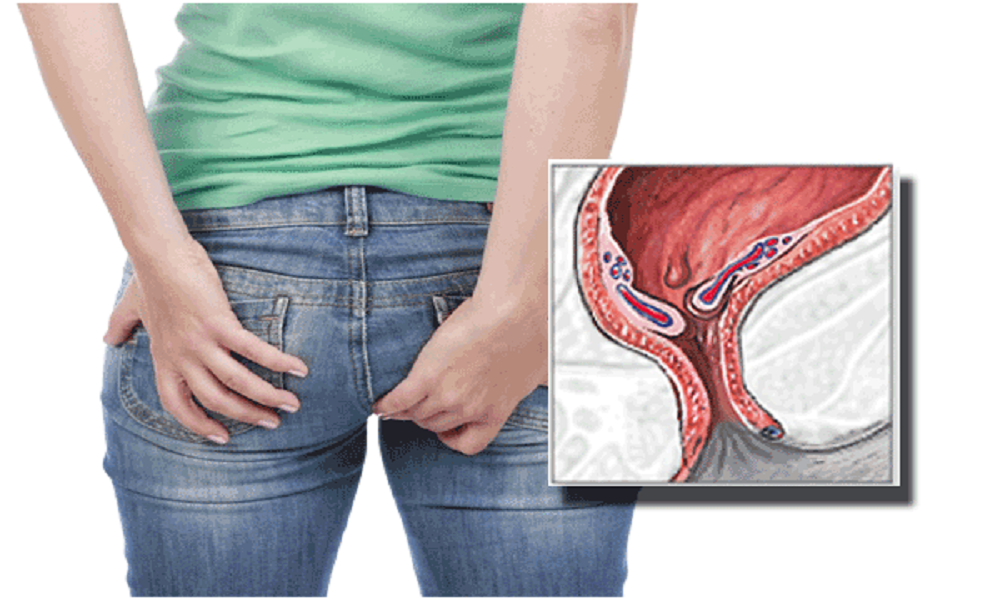
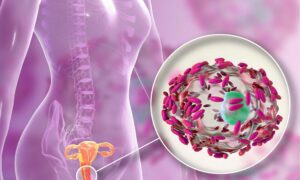
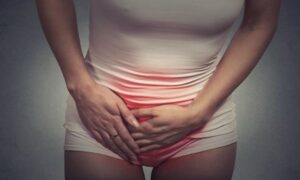
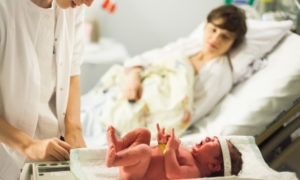
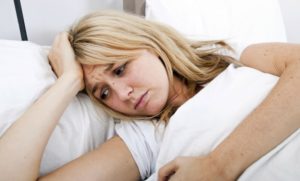
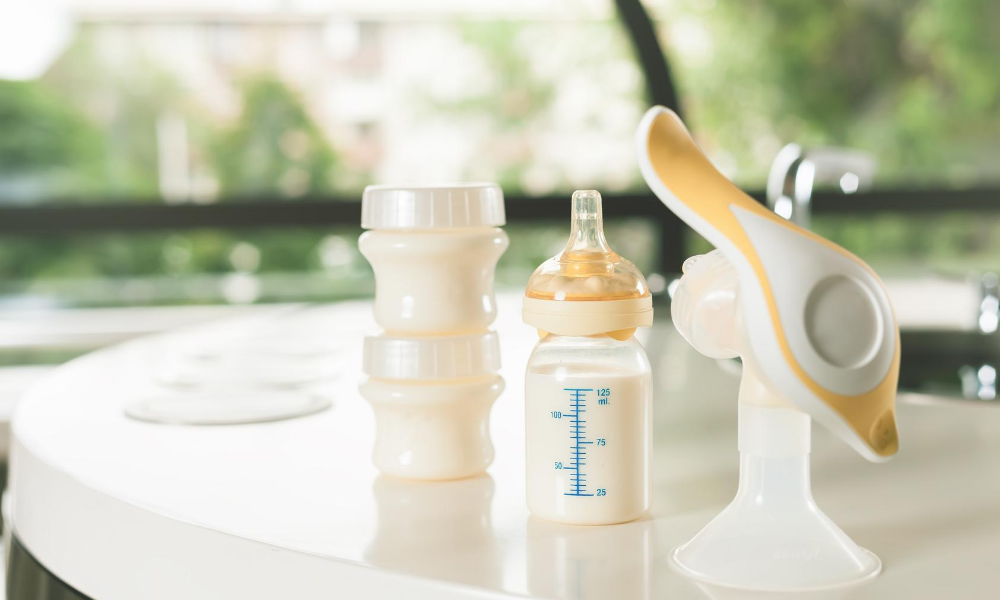
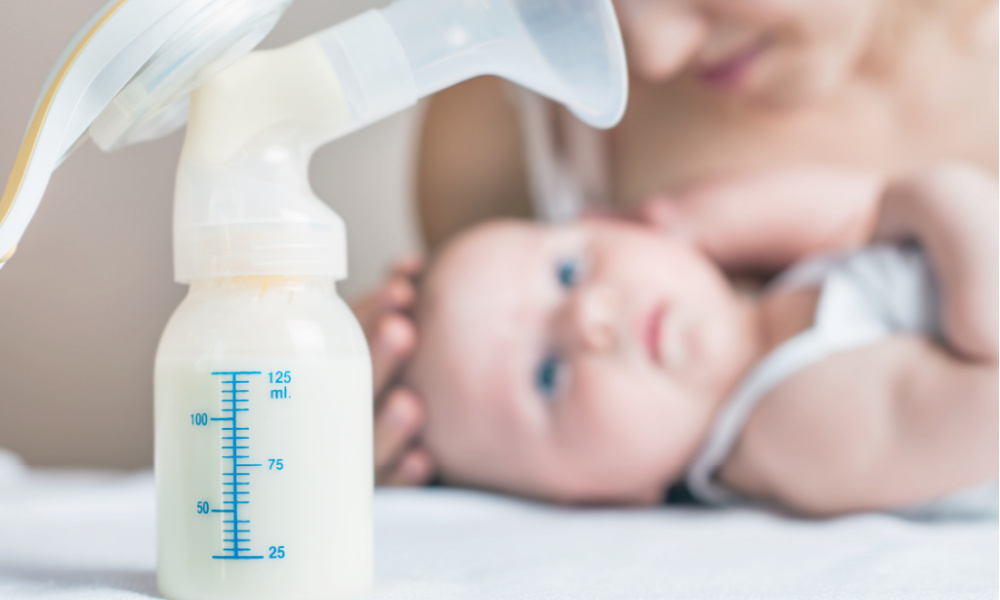
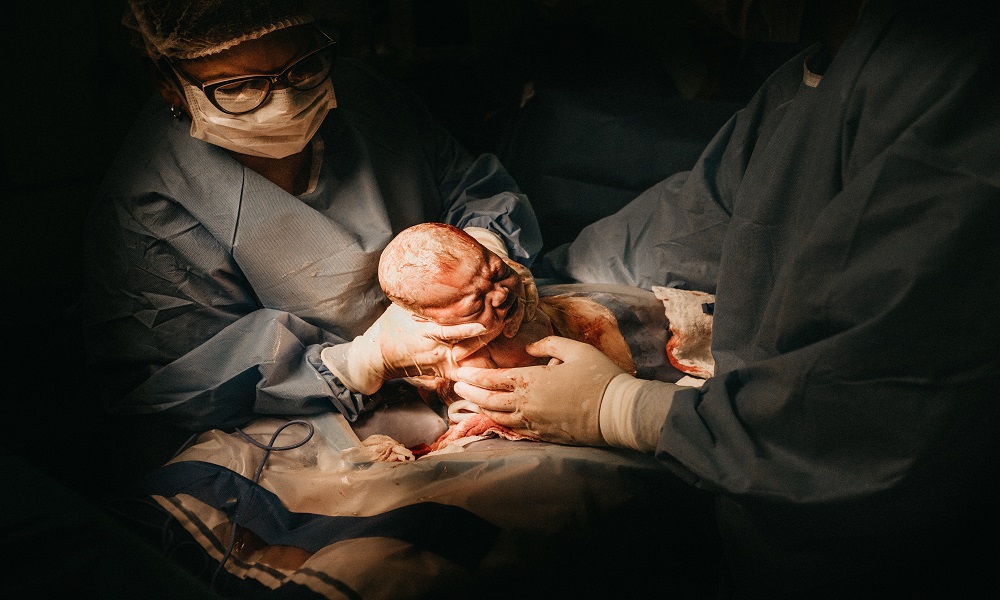
2 Replies to “When Do Postpartum Hemorrhoids Go Away- Complete Guide”